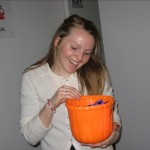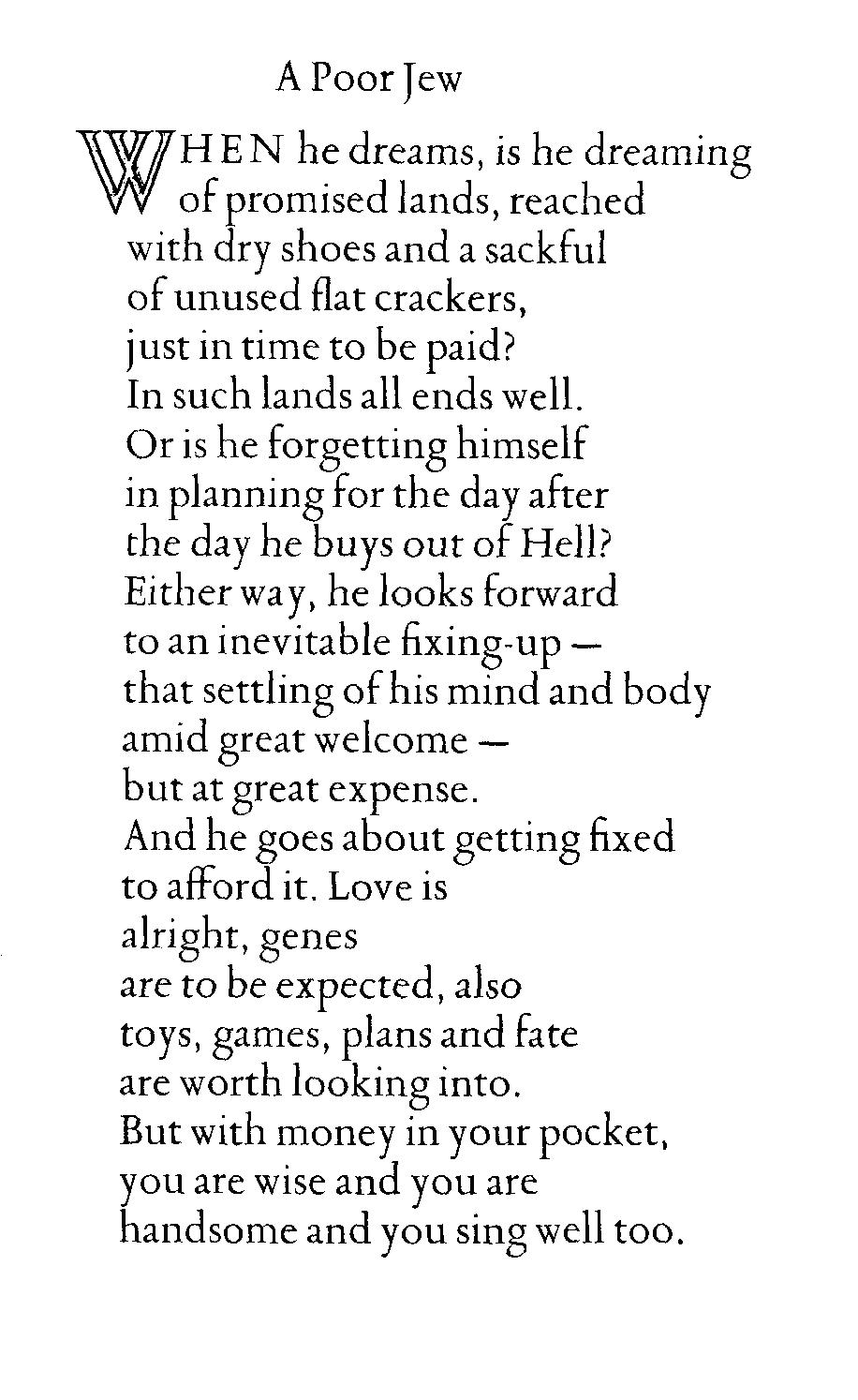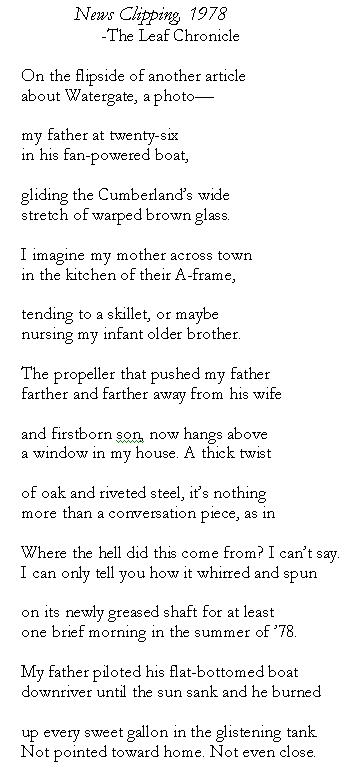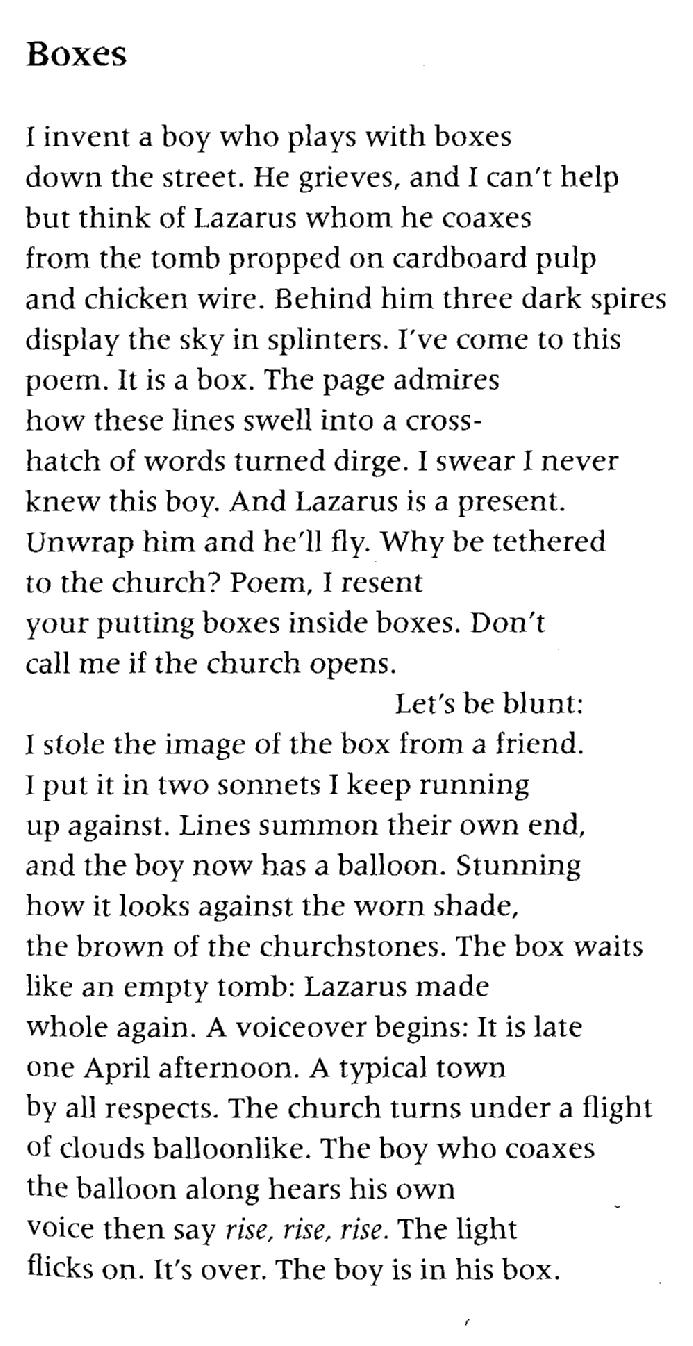Featured Fiction Writer: August 2009 Vol. 1 #10

Janelle Blasdel
Janelle Blasdel, from Columbus, Indiana, is currently working toward her MFA in creative writing at Southern Illinois University Carbondale, where she also teaches. Her work has appeared in one of Main Street Rag’s short fiction anthologies.
Parade for the Dying
(an excerpt)
Forgive her, but she had to see it. It was why she’d come to the small, little Indiana town in the first place – to see if what she’d read was true. The first time Gwen learned about it, she stood in line at a grocery store in her New Jersey suburb. She let her eyes roam over new flavors of gum and candy bars and beef jerky, and when that became too boring, she read the tabloid headlines: Two in Five Gynecologists are Fake; Multiple Personality Man Charged Triple Room Rate; Woman Delivers Own Baby While Skydiving! But the one that made Gwen reach for a copy had a headline that seemed made for her, written because it knew she would stand in this line on this day and find it. It read, Parade for the Dying and Almost Dead. Gwen checked over her shoulder (no one stood behind her), grabbed a copy, folded the flimsy magazine in half, and set it on the rubber check-out belt, beneath the carton of eggs.
The first time Gwen confronted death she stood no higher than a bar stool, five years old. She’d found her hamster, Scooter, curled up in the corner of his cage, his face pressed against the glass in a way that revealed his two terrible front teeth. Death, to Gwen, appeared violently, suddenly, without warning. Since then, Gwen considered her own death each day, clipping out newspaper articles about illnesses and accidents and then rubber-cementing them into a lined-paper notebook. She collected death – carbon monoxide poisonings, Christmas tree fires, murder-suicides, drownings by lake, river, pond, pool, bathtub, so many car accidents. At night, she lay in bed and flipped through the pages. She wore the edges soft with her thumb and forefinger, the way she absentmindedly strummed at the notebook’s corner while reading the reports over and over, thinking to herself, Oh, here’s how I’d like to die, if it were up to me.
She had no reason to think so often about death; she was healthy, young – only a few years out of college. Perhaps she was bored with life, bored with her job at the bank, bored with the customers who talked of children and grandchildren and CD’s and home equity lines. Life seemed more exciting to Gwen when she considered that it had to end somehow, that each person was on some great journey, finishing a puzzle that only came into focus once that last piece got jimmied in.
So this parade, just the idea of this parade, made Gwen’s heart speed up and her palms sweat. She pasted this article in her notebook, on the cardboard backing to mark the very end. For three days she read the article at breakfast, spooning cereal into her mouth and running her bare feet back and forth across the cool linoleum floor in her kitchen, wondering if this parade was real, wondering what she might find in France, Indiana, a town just barely large enough for its own post office and a Wal-Mart.
The outskirts of France reminded Gwen of a postcard she’d once seen of the Midwest: fields full of feathery-tipped wheat, the golden stems bowing in the wind. In the middle of the field, a combine. Blue sky above.
The town itself consisted of a single main square, a redbrick courthouse in the center with window shops forming a larger square around it. Gwen read the names of the shops – Judy’s Alterations, Phoenix Orient Chinese, France Goodwill, Master Chin’s Tae Kwon Do, Taylor & Co., CPA. In one storefront she noticed a row of mannequin heads, all donning old glamour hats with wide, sweeping brims, some with bows. Not many people were out on this Tuesday evening – just a middle-aged couple on the sidewalk, both of them overweight and walking aimlessly. The man raised a hand as Gwen drove past.
She kept on through Seminary Street, out beyond a few homes with rusting rotary clotheslines in the front yards, plastic toy lawn mowers and strollers and deflated kickballs abandoned in the grass. In one yard sat a tan Buick with a red FOR SALE sign taped to the windshield.
Her bed and breakfast, The Almost Home Inn, sat out in the country just past these homes, near the quarry through which the old railroad tracks used to run. It was a restored Victorian house with hunter green siding and a thick, green lawn. The fence around the yard wore a fresh coat of white paint, as did the house’s trim and front porch. A wooden sign hung by the mailbox, announcing Almost Home and its birth year – 1928.
Gwen parked in the lot just off to the side at about the same time the sun lowered. She pulled her suitcase from the backseat and made her way down the sidewalk, skirting past the mulched landscaping, the pansies, the morning glories. She hopped the steps up to the porch and paused in front of the door to fix her reflection in the windowpane. With her fingers, she brushed her short, amber-colored hair to make it sit just so on her forehead, pulled at the bottom of her shirt, and then pushed open the door. A bell jingled above her head as she stepped inside.
The foyer collected shadows across its hardwood floor, and Gwen moved quietly as she set her bags down on the bench by the stairs. She liked the smell of the place, lemons and dryer sheets, and looked around for a desk or a counter where someone could help her. Nothing. If it hadn’t been for the hanging sign at the mailbox, Gwen would have worried that she’d mistakenly entered someone’s home. In the corner by the door stood a coat rack with a few jackets; on the floor next to it was a woven basket full of antique toys like Jacob’s ladders and John Deere tractors and a Jack-in-the-Box. Gwen moved to pick up some of the toys, but stopped short when she heard a voice behind her.
“Hi, there,” the voice said. Gwen turned and saw a young woman with chestnut-colored hair that stopped just below her shoulders. She carried blue towels in her arms and wore a white polo shirt and black chinos.
“Hi,” Gwen said. “I’m here to check in.”
“Sure,” the girl said. She nodded at the towels she carried. “Let me just put these in the closet.” The girl disappeared through a door for a moment and then was back with a clipboard and a key. “Gwen?” the girl asked.
“Yes.”
“Hi, Gwen. Nice to meet you. I’m Natalie.”
“Natalie, good to meet you too,” Gwen said, and they shook hands.
“Yes, well, you’re in Room 3.” Natalie handed Gwen the key. “Oh, that’s a nice one that looks out over the cornfield.” She ran her finger down her clipboard. “There’s also a patio out back with some bird feeders – a lot of finches to watch around here, if you like birds.”
“Sounds nice,” Gwen said.
“Yes, and let’s see – breakfast is served between seven and ten. If you enter or leave the inn at odd hours, please try to be quiet so you don’t disturb the other guests.” The girl looked again at her clipboard. “If you have any questions I’m always available.” She nodded at the door across from the stairs. “I’ve got an apartment here myself.”
“Actually,” Gwen said, and here she felt embarrassed for asking. “Is there a parade here this week? I read somewhere that – ”
Natalie’s eyes narrowed for a second, making Gwen pause. The girl took a step closer to Gwen and spoke in a soft voice. “Why? Would you like to register to walk?” she asked and placed her hand under Gwen’s elbow.
“Oh, no. No.” Gwen waved her hand. “I just wanted to see it.”
Natalie laughed, her voice rising to its normal volume. She stepped back from Gwen. “Right, right. Well, we’ve got the festival tomorrow morning, and then the parade later that night.”
“Oh, a festival? I didn’t realize – ”
Natalie nodded. “If you’re going to the parade, you’ll want to go to the festival, too. And take cash with you – it’s cash only.”
Up in her room, Gwen unpacked her clothes, hanging her nice shirts in the closet. She’d brought one sundress with her, blue with white straps. Once she finished, she sat on the bed (white linens) with her notebook in her lap and looked around the room, taking in the pale yellow walls, the white day lilies that sat in a vase on the nightstand, the white furniture. A round, red clock hung on the wall across from her. She ran her fingers over the notebook’s smooth cover and listened to the quiet evening settle in, the clock ticking in the background. She kicked off her tennis shoes, but still felt hot and sticky in her traveling clothes, so she peeled off her socks and slipped off her jeans, too, lifted her T-shirt over her head. In her bra and underwear, she walked to the bathroom and brushed her teeth, took a drink of icy water, and then fell quickly into a heavy sleep.
For breakfast, Gwen ate a bowl of homemade granola and fruit with a little bit of milk, some scrambled eggs. She took her meal alone in the breakfast nook, up early so she could be one of the first to get to the festival. Natalie had said she could walk, that it would be a nice walk in the cool morning. Gwen headed out the front door and down the sidewalk to the fence, smelling wild onions and cut grass. She walked along the road’s edge, staring out over the hayfields and the early morning fog that hung above everything like a steamy blanket. Soon the sun felt warm on her shoulders, and as she neared the houses closer to town, she took off her windbreaker and wrapped it around her waist.
When she reached the crest of the hill just before town, Gwen saw roadblocks at each of the square’s corners and men in navy blue volunteer shirts turning away traffic. Gwen nodded to the men as she passed and walked carefully through the already-thick crowd of spectators. Dotting the lawn around the courthouse were white canopy tents. Gwen expected that beneath them she’d find latch hook rugs and local honey and fresh flowers, an assortment of produce and crafts and baked goods, but as she neared them, she realized that this festival was, instead of a farmer’s market, a yard sale for the dying.
Behind a table at the first tent sat a twig-thin woman with yellow-white hair. Even in the heat she wore a sweater, a red flannel blanket spread across her lap.
“Hello,” the woman said. She held her hand out to Gwen. Gwen saw how it trembled as it hung in the air, and when she took it in hers the skin felt waxy to the touch. The woman continued in a shaky voice. “I’m Ruth,” she said.
“Hi Ruth,” Gwen said, and she let go of the woman’s hand. Gwen felt like she ought to say something, something encouraging or consoling. “I’m sorry – ”
Ruth waved her palm as if swatting gnats. “Don’t be,” she said. “I’m old. My husband’s dead.” She coughed, one hand on her chest. “ ’Scuse me.” More coughing and then she looked up at Gwen. “Do you need potholders, dear? I’ve got a lot of those, really good ones, too. It’d be nice to know a pretty girl like you’d be usin em.”
Gwen smiled. She didn’t cook, really, but found it hard to say no to a dying person. She held up two fingers. “Two, please.”
Beneath other tents, those who were dying weren’t so old. Sometimes there were future widows and widowers looming in the background (perhaps for sale, too), retrieving items from shelves, counting out change from lockboxes. Children played on blankets, their cheeks red from the heat. In one tent, Gwen couldn’t tell at first who was dying. She entered the tent smiling but not meeting the eyes of the man, the woman, or the young child on the man’s lap (a boy). Was she supposed to smile?
She stood in front of one of the tables, a red tablecloth spread over its top, and scanned the array of things to choose from: salt and pepper shakers, old CDs, sewing kits, a sun tea maker, packets of seeds, stacks of paperbacks with torn covers, a few watches and necklaces and bracelets, some rings. Must be the woman dying, Gwen decided, and she couldn’t keep herself from checking over her shoulder, to see what the woman was doing. Gwen spotted her, standing in a corner, this woman who could have been as young as Gwen, her blonde hair pulled up off her neck with a plastic clip, her thin arms crossed in front of her chest. Dark circles hugged the bottoms of her eyes, making the woman look, not sick, but tired, like any mother of a young child might look.
Gwen moved to the back of the tent where clothes hung on a rack. She slid the plastic hangers of sweaters and blouses and slacks and dresses back and forth so that they clacked together. She touched each item lightly, careful to treat the woman’s belongings with respect as if that would make the woman feel respected herself. Finished with the clothes, Gwen moved to a row of shoes sitting in the grass. A pair of black leather sandals made Gwen pause, and as she bent to pick one up, the woman came to her side.
“Those are my favorite,” the woman said. “I could live in them all summer long.”
Gwen smiled. She looked at the still sitting husband and child, then back at this woman who, Gwen noticed, was very much alive right now and smelled like lavender. “They’re very pretty,” Gwen said, and she nodded a few times. Are you afraid to die?
“They are,” the woman said. She bit the inside of her cheek. Yes.
[…]


